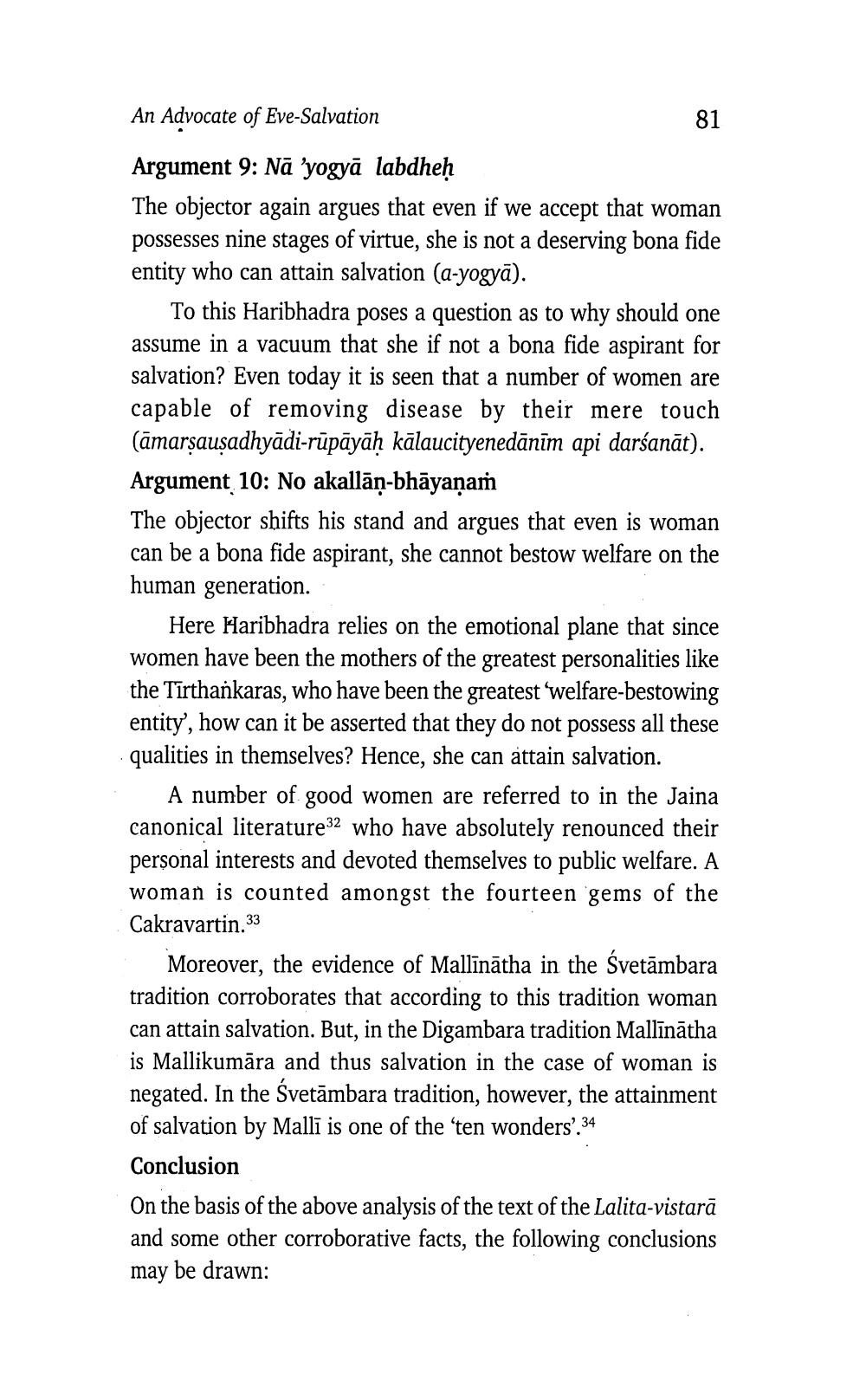________________
81
An Advocate of Eve-Salvation Argument 9: Nā 'yogyā labdheḥ The objector again argues that even if we accept that woman possesses nine stages of virtue, she is not a deserving bona fide entity who can attain salvation (a-yogyā).
To this Haribhadra poses a question as to why should one assume in a vacuum that she if not a bona fide aspirant for salvation? Even today it is seen that a number of women are capable of removing disease by their mere touch (āmarşauşadhyādi-rūpāyāḥ kālaucityenedānīm api darśanāt). Argument 10: No akallāņ-bhāyaṇam The objector shifts his stand and argues that even is woman can be a bona fide aspirant, she cannot bestow welfare on the human generation.
Here Haribhadra relies on the emotional plane that since women have been the mothers of the greatest personalities like the Tirthankaras, who have been the greatest 'welfare-bestowing entity', how can it be asserted that they do not possess all these qualities in themselves? Hence, she can attain salvation.
A number of good women are referred to in the Jaina canonical literature32 who have absolutely renounced their personal interests and devoted themselves to public welfare. A woman is counted amongst the fourteen gems of the Cakravartin.33
Moreover, the evidence of Mallīnātha in the Śvetāmbara tradition corroborates that according to this tradition woman can attain salvation. But, in the Digambara tradition Mallīnātha is Mallikumāra and thus salvation in the case of woman is negated. In the Svetāmbara tradition, however, the attainment of salvation by Mallī is one of the 'ten wonders’. 34 Conclusion On the basis of the above analysis of the text of the Lalita-vistarā and some other corroborative facts, the following conclusions may be drawn:




